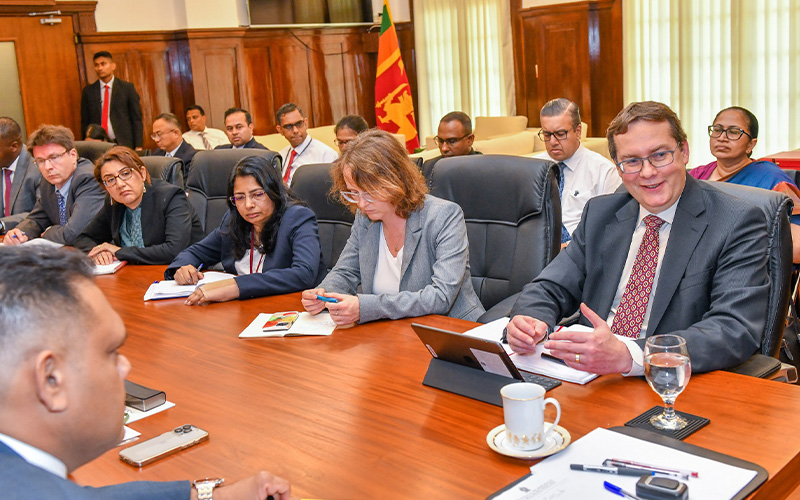
Sri Lanka’s discussion with international bondholders to restructure more than USD 12 billion in debt hit a snag after it rejected two of the conditions, putting at risk the critical International Monetary Fund support which has been a lifeline to Sri Lanka since the onset of the economic crisis in 2022.
Some of the proposal's "baseline" assessments and a lack of a contingency option in the case of continued economic weakness were the two main reasons the deal was not agreed, the government said in a statement. The full statement can be found here.
Sri Lanka has already struck a deal with its main government creditors, but an "agreement in principle" with bondholders was also needed to secure IMF Board approval for the next $337 million installment of its $2.9 billion programme.
The government said one of the main issues had been that the "baseline parameters" of the bondholders' plan had not matched those embedded in its IMF programme.
Sri Lanka also disagreed with a proposal to link future repayments to bondholders to the country's macroeconomic growth, through "macro-linked bonds" or MLB for short. It said it was seeking more protections if Sri Lanka's economy were to underperform IMF growth projections and a "test" for triggering both the upward and downward adjustments in the MLB.
An International Monetary Fund (IMF) spokesperson was quoted in Reuters as having said that it is ready to support Sri Lanka's discussions with international bondholders and will provide a formal assessment after the parties reach a tentative agreement in principle.
"We hope an agreement consistent with the parameters of the IMF-supported program and official creditors' Comparability of Treatment requirements can be reached soon, ahead of completing the second review under the program," the spokesperson said.
Sri Lanka plunged into its worst financial crisis in 2022 after its foreign exchange reserves left it unable to pay for essentials including fuel, cooking gas, and medicine. The island nation defaulted on its foreign debt in May 2022 and kicked off negotiations with bilateral creditors several months later, eventually securing an agreement in principle with China, India and the Paris Club last November.
Sri Lanka also needs agreements with each of the bilateral creditors, including the Export-Import Bank of China, to complete the IMF review process.
Supported by the IMF program, Sri Lanka has seen its once soaring inflation moderate to 0.9% in March and its currency strengthen 7.6% so far this year. The economy is expected to return to growth after contracting 2.3% in 2023.
We need your support
Sri Lanka is one of the most dangerous places in the world to be a journalist. Tamil journalists are particularly at threat, with at least 41 media workers known to have been killed by the Sri Lankan state or its paramilitaries during and after the armed conflict.
Despite the risks, our team on the ground remain committed to providing detailed and accurate reporting of developments in the Tamil homeland, across the island and around the world, as well as providing expert analysis and insight from the Tamil point of view
We need your support in keeping our journalism going. Support our work today.
For more ways to donate visit https://donate.tamilguardian.com.

